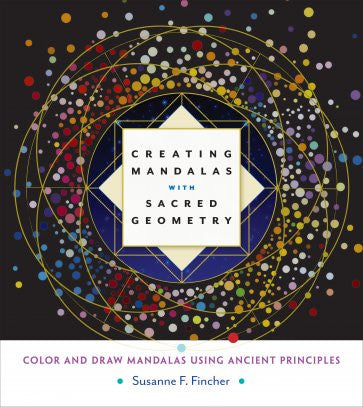Creating Mandalas with Sacred Geometry
Creating Mandalas with Sacred Geometry
Couldn't load pickup availability
Sacred geometry refers to designs imbued with symbolic meanings, as well as the techniques used to create those designs. Once thought of as esoteric knowledge, numbers operate in ways that are amazing even by today’s secular standards. The designs presented here draw on the vast history of mathematics and philosophy, from Pythagoras—who believed that reflecting on mathematical truths could shift the psyche closer to the divine perfection of the number gods—to the Fibonacci sequence, Jewish mysticism, and Jung. Here the tradition of sacred geometry is applied to drawing mandalas as a way of cultivating states of consciousness that contribute to spiritual and psychological well-being and self-realization. Two methods for engaging with mandalas are used throughout: intentional drawing guided by knowledge of geometry and the significance of numbers, signs, and symbols throughout history; and intuitively creating mandalas with a sacred intention using the drawing instruments and procedures of geometry.
The process of drawing a mandala with geometry is often meditative. Once decisions are made about design, creating the mandala becomes a rhythmic repetition of smooth, sure lines, intriguing convergences, and gratifying results. Moreover, even when carefully constructed, a mandala takes on significance for its creator beyond being a mere drawing exercise. As Jung observed, the mandala functions as a sort of messenger transmitting information between the known and unknowable, or unconscious, parts of your psyche.
Share




